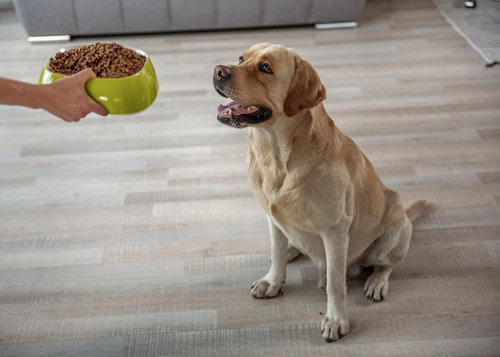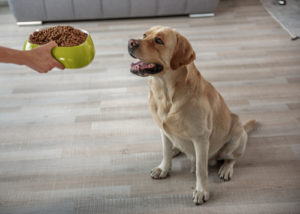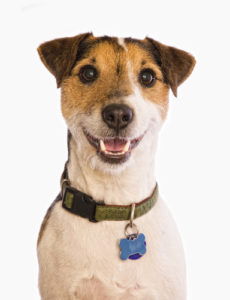
A quick guide to keeping a dog
There’s no doubt a dog can make a great additional family member to any home but before you buy you should be fully aware of the commitment you are undertaking. It may seem like basic common sense but the single most important thing in dog ownership is to make sure your new canine friend is a healthy and happy chap.
Below is some well heeded useful advice for new dog owners:
Feeding
 The following feeding regime should be adhered to for pups of all breeds:
The following feeding regime should be adhered to for pups of all breeds:
Pups 8 to 12 weeks old need four meals a day
Pups 3 to 6 months old need three meals a day
Pups 6 months to 1 year need two meals a day
When your dog reaches one year old, one meal per day is usually enough. However, for some dogs, mostly larger breeds, it’s generally better to feed them twice per day. Always provide a well-balanced diet for your dog. If you provide premium-quality dry food mixed with water, broth or canned food you won’t go far wrong. If you give your dog an occasional treat, such as fruit or vegetables, be sure to check their canine-friendly. Clean, fresh water should be available for your dog at all times. Food and water dishes need to be washed frequently.
Exercise
Dogs need exercise for stimulation, burn calories and to generally stay healthy. Individual exercise needs vary based on the dog’s breed (or breed mix), sex, age and general level of health. Exercise also helps dogs avoid boredom and reduce the tendency towards destructive behaviour. Dogs have a natural instinct to dig, chew, chase and retrieve, so if your dog’s regular walk gives it the opportunity to do those things, so much the better.
Handling
To carry a puppy or small dog, place one hand under the dog’s chest, with either your forearm or other hand supporting the hind legs and rump. Never attempt to lift any dog by the forelegs, tail or back of the neck. If you do need to lift a large dog, lift from the underside, supporting its chest with one arm and his rear end with the other.
Housing
Dogs need a warm, quiet place to rest, away from drafts and preferably off the floor. A proper dog bed with a blanket and pillow is ideal. If you intend to house your dog in a kennel outdoors, be sure the area is securely fenced. The kennel should be warm and draught free with a sheltered area. Whether your dog is in or outdoors be sure to wash its bedding often.
Grooming
You can help your dog to reduce shedding with frequent brushing and generally helping to keep it clean, although most breeds won’t need to be bathed more than a couple of times per year. Before bathing, comb or cut out all mats from the coat and make sure the dog is well rinsed after bathing. Check for fleas and ticks daily, especially during warm weather.
Licensing and Identification
 In England, Scotland and Wales a dog license is not required. However, in Northern Ireland, dog licences are required under the Dogs (Northern Ireland) Order 1983. In the USA, there are at least some states, municipalities, and other jurisdictions, which require a dog license and an accompanying rabies vaccination. In Austalia, dog licences are mandated by state and territory legislation but are issued by Local Government.
In England, Scotland and Wales a dog license is not required. However, in Northern Ireland, dog licences are required under the Dogs (Northern Ireland) Order 1983. In the USA, there are at least some states, municipalities, and other jurisdictions, which require a dog license and an accompanying rabies vaccination. In Austalia, dog licences are mandated by state and territory legislation but are issued by Local Government.
In the UK, under the Control of Dogs Order 1992, every dog in a public place must wear a collar with the name and address of the owner, either inscribed on it or attached to it. In other countries, where a dog license is required then identification will also almost certainly be necessary.
Fleas and Ticks
Daily inspections of your dog for fleas and ticks during the warm seasons are important. Use a flea comb to find and remove fleas. If the infestation persists, take your dog to a vet.
Vets and Medicine
Never give your dog any medication that has not been prescribed by a vet. If you suspect that your animal has ingested a poisonous substance, take it to a vet immediately.
Spaying and Neutering
Unless you have breeding in mind most people choose to have their dogs neutered. Adult dogs can be neutered at any age but the best time is before sexual maturity. In the past, the recommended spaying/neutering age was 6 – 9 months. However, it is now quite common for surgery to take place at 4 months.
Vaccinations
Your dog will obviously benefit from receiving vaccinations, as they can help protect it against some potentially fatal diseases, such as parvovirus, canine distemper, leptospirosis and infectious canine hepatitis. Additionally, vaccinating your dog also stops them from catching and spreading deadly diseases to other dogs.
Staying legal
Always keep your dog on a leash when you are outside unless you are in a secured, fenced-in area. In the UK, Dog owners can receive between £50-£80 on-the-spot fine if they fail to clear up after their dog’s mess. In some places, you can receive a penalty for simply forgetting to carry a poo bag or pooper scooper when walking a dog.
Things to buy
Things you will need for your dog will include some or all of the following:
- Premium-quality dog food and treats
- Food dish
- Water bowl
- Toys
- Brush & comb for grooming, including flea comb
- Collar and ID tag
- License (if required)
- Leash
- Dog carrier (for small dogs)
- Training crate
- Dog basket (or box) with a warm blanket
- Dog toothbrush
- Pooper scooper